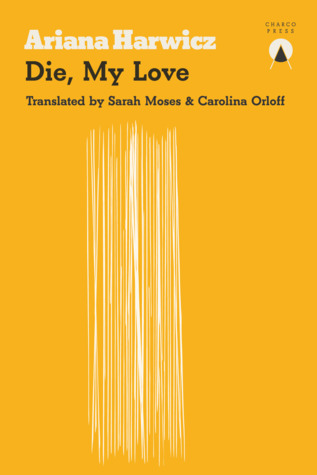This is what I mean by a work of literature.

When I was writing about my books of the year at the end of December I remember saying that Juan Gabriel Vasquez’s The Shape of the Ruins is ‘the best kind of autofiction – the kind that is actually about something’. Vasquez’s book is the most complex web of stories – the author’s own life history and passions woven inextricably with the lives of others and the historical events that threaten their sanity. Die, My Love occupies a smaller, tighter canvas but – like Meena Kandasamy’s When I Hit You, the novel it brings to mind for me most forcibly – it is equally ‘about’ something. I’m not just talking about its overt subject matter – imprisonment of the self, female anger, the violent contradictions that are implicit in becoming a mother – but the ways that Harwicz’s novel (and Kandasamy’s) are also ‘about’ language.
Die, My Love is a dense mat of language, all the more miraculous through having its vividness so boldly captured through the medium of translation. The book’s translators, Carolina Orloff and Sarah Moses, have achieved something profound and beautiful in bringing this work intact to an English-speaking audience.
The close interchange between the literal and the metaphorical, the mundane and the phantasmagorical in Die, My Love has the heart-pumping and energising effect of a cold shower. People have been comparing Harwicz’s work with Samanta Schweblin’s Fever Dream and I think that if you enjoyed one you will definitely enjoy the other. Their effects are different, though. For me, Fever Dream was just that: creepily languorous, a rising increment of terror (that novel’s impact only increases with time). Die, My Love is insistently immediate, spiky, jagged. If I were forced to choose, it would be my favourite of the two.
There are novels you read and are so impressed by you immediately start lusting after the writer’s next, as-yet-unwritten book. Martin MacInnes’s Infinite Ground was like that for me. So is this one. Die, My Love is the kind of novel that makes you feverishly excited about writing. It reminds you of what should be possible, if you pay proper attention to what you are doing. It is about that.